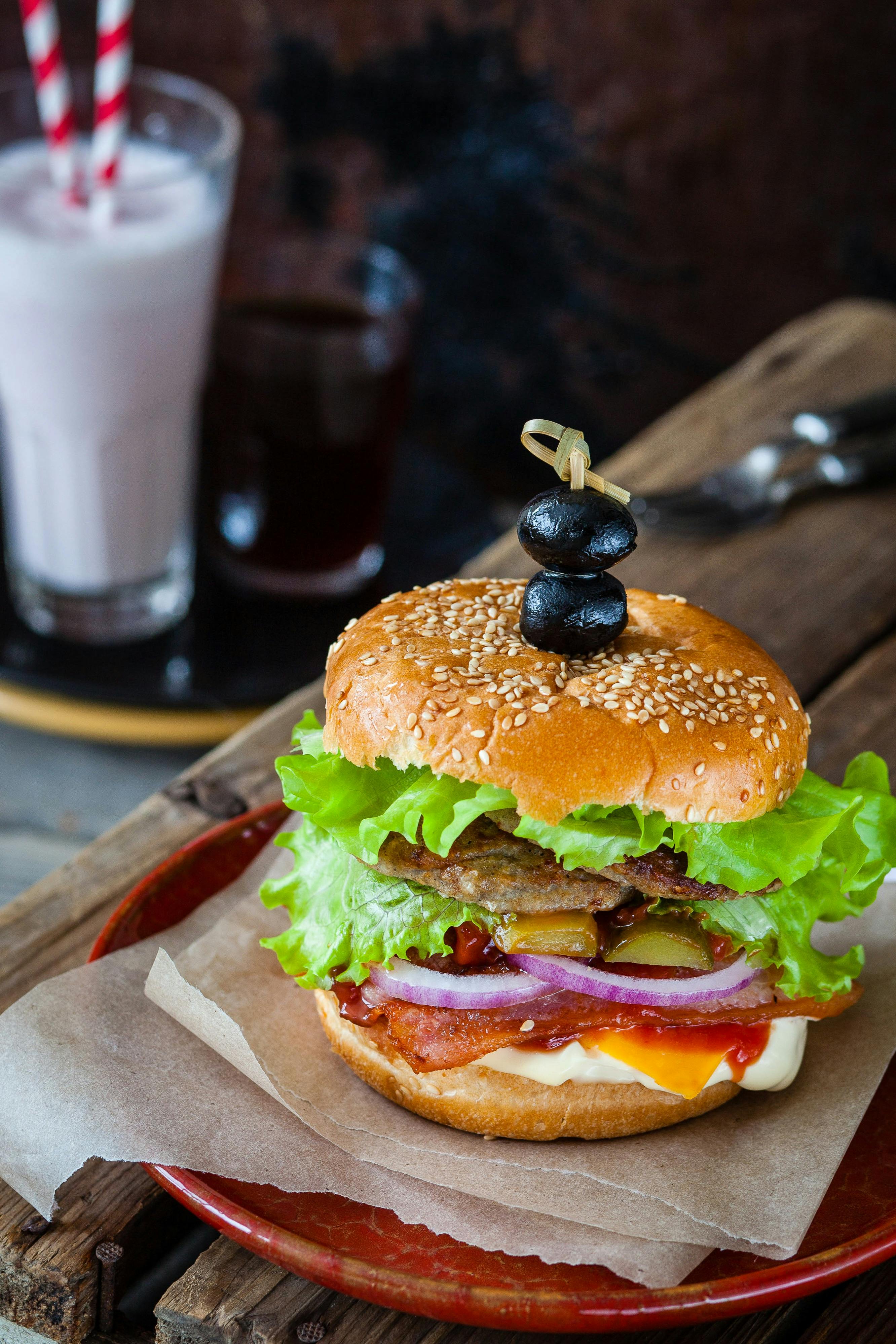Smart Ways to Regain Your Taste After COVID-19: Learn More for 2025

Effective Strategies to Restore Your Taste After COVID-19: Practical Tips for 2025
The loss of taste, known as ageusia, is a concerning effect that many have experienced after contracting COVID-19. This unexpected symptom can significantly impact one's quality of life, affecting the enjoyment of food and even emotional well-being. Understanding how to get taste back after COVID-19 is crucial for recovery and revitalization of both the physical and mental aspects surrounding food. In this article, we’ll explore various methods and dietary tips for taste recovery, helping you regain your flavor perception and enhance food enjoyment post-COVID. Get ready to embark on a journey to rediscover your sense of taste!
Throughout the article, we will cover essential strategies, including the importance of olfactory training, dietary tips for taste restoration, and effective home remedies. Additionally, we will discuss the psychological aspects of taste recovery and the role of community support. By the end, you'll have a comprehensive understanding of how to improve your taste sensation after COVID-19 and practical steps to reestablish your taste buds.
Here's what you can expect to learn:
- Effective techniques for taste recovery
- Importance of nutrition and hydration for taste restoration
- Olfactory training and its role in taste improvement
- Support networks available for survivors
- Encouraging tips for maintaining a positive outlook during your recovery process

Essential Techniques for Taste Recovery After COVID-19
Understanding the Mechanism of Taste Loss
The connection between smell and taste is fundamental to our overall perception of flavors. After COVID-19, many individuals experience alterations in taste due to olfactory dysfunction. Understanding how taste buds work after COVID is crucial for effective recovery. The spike protein of the virus affects the cells responsible for taste perception, leading to changes in flavor experience. Recognizing these physiological processes can aid in identifying effective strategies to recover.
Home Remedies for Taste Loss
Natural remedies for taste loss can play a vital role in recovery. For instance, incorporating certain spices and herbs such as ginger, turmeric, and cinnamon into meals has been shown to enhance flavor sensation. Additionally, drinking warm fluids can aid in stimulating taste buds, while maintaining a balanced diet packed with vitamins can support recovery.
Dietary Tips for Taste Restoration
A healthy and varied diet contributes significantly to taste restoration. Foods high in zinc, such as beans and nuts, have been linked to improved taste function. Including a range of flavors, textures, and colors in meals can stimulate the taste buds and reintroduce pleasure in eating. Exploring global cuisines can also be beneficial, as it can introduce unique flavors and combinations to the palate.

Olfactory Training for Taste Improvement
Olfactory training involves repeated exposure to different odors over a period, which can significantly aid in taste recovery. Engaging in olfactory training can help regenerate the olfactory senses, thereby indirectly enhancing taste perception. Simple exercises include smelling essential oils or spices daily, which can help condition and rejuvenate the olfactory glands.
Dietary Supplements for Taste Health
Vitamins and supplements can be beneficial for those recovering from taste loss. Zinc supplements are particularly effective for improving taste sensation and boosting the immune system for taste recovery. Consult with a healthcare provider to identify the best supplement strategy suited for your specific needs.
Navigating Social Aspects of Taste Recovery
Community Support for Taste Loss
Recovering from taste loss can sometimes feel isolating; however, there are numerous community resources for taste recovery. Engaging with support groups and attending workshops can provide emotional support and practical advice from individuals who share similar experiences. Open conversations about taste recovery can be incredibly validating and encourage psychological resilience.
The Psychological Impact of Taste Recovery
Understanding the psychological aspects of taste recovery is essential. The experience of taste loss can lead to feelings of frustration or sadness. It’s crucial to practice mindfulness during meals to reconnect with the experience of eating. Paying attention to textures and temperatures can promote a more fulfilling eating experience, even when flavors are muted.
Building a Taste Recovery Plan
Creating a personalized taste recovery plan can help track progress and set attainable goals. This plan can include setting taste tests with different flavors and documenting your reaction. Small, manageable steps can build confidence as taste sensation gradually improves.
Mindfulness Practices During Meals
Engaging in mindfulness while eating can enhance the overall experience. Focusing on each bite, exploring individual flavors, and noticing various textures can contribute to a more rewarding meal, even if the taste isn’t fully back yet. This practice not only helps with recovery but enriches the enjoyment of food.
Practical Strategies for Enhancing Flavor Perception
Experimenting with Flavors
Finding ways to experiment with flavors is crucial for reestablishing the enjoyment of food. Consider unconventional pairings or intensifying existing flavors with sauces and condiments. Additionally, engaging family and friends in tasting activities can motivate you to explore various tastes together.
Using Spices to Improve Taste Sensation
Incorporating spices into meals can significantly enhance flavor perception. Spices that improve taste sensation, such as cayenne pepper, fennel, and garlic, can elevate dishes and create robust flavors that help stimulate the taste buds. Learning to use herbs and spices creatively can lead to delicious meals that reignite your passion for food.
Tracking Taste Progress
Documenting taste recovery trends can provide motivation and observable progress towards regaining taste. Consider keeping a food journal that tracks flavors, textures, and the emotional connection to meals. This practice can illustrate the journey of taste restoration and help you diversify your diet for optimal recovery.
Hydration and Its Role in Taste Recovery
Understanding the importance of hydration for taste recovery is fundamental. Staying well-hydrated can aid bodily functions and enhance taste perception. Aim for a balanced intake of fluids, including water and herbal teas, and monitor how hydration affects your flavor experience.
Q&A: Common Questions About Taste Recovery After COVID-19
How long does it take for taste to return after COVID-19?
The timeline for taste recovery varies significantly between individuals, with many experiencing improvement within weeks to a few months. Factors such as overall health and adherence to recovery strategies play a role in this healing process.
Are there any specific foods to avoid for taste restoration?
Avoiding overly processed foods and excessive sugar can be beneficial during recovery. Such foods can dampen taste perception and hinder improvements. Focus on natural flavors and whole foods for optimal results.
Can supplements really help restore taste?
Yes, certain supplements, particularly zinc and vitamins, can aid in taste recovery. It’s important to consult with healthcare providers to ensure proper dosage and to avoid potential interactions with other medications.
What are some creative cooking methods to enhance flavor post-COVID?
Utilizing various cooking methods, such as grilling, roasting, or frying, can enhance flavors and engage your taste buds. Combining different cooking styles can lead to rediscovered flavors and textures while accentuating food enjoyment.
How important is community support during the recovery process?
Community support serves a vital role in emotional well-being during the recovery process. Connecting with others who understand the struggles of taste loss can provide encouragement and helpful tips for recovery, promoting a positive mindset.
Understanding and navigating the journey of taste recovery after COVID-19 can seem daunting, but with the right strategies and support, it is possible to restore your taste function effectively. Remember to focus on nutrition, hydration, and mindfulness, and explore creative avenues to rediscover the joy of food.